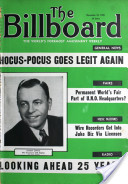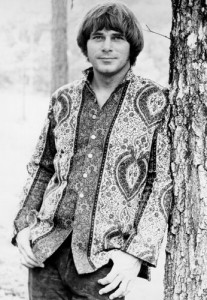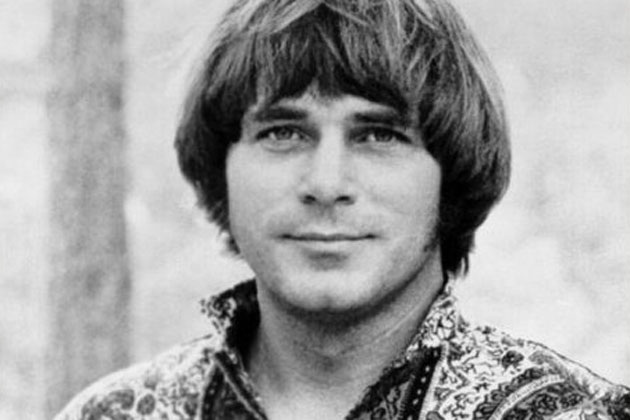A lot of pictures coming soon. Thanks to Jukebox John Bartony
All of these will be on the Michigan State Fair Page on the left of the site.
![]()
AIRCHEX OF THE WEEK WITH JIMMY HAMPTON
Posted April 16, 2012: this exhibit has been updated. One new WXYZ-AM Jim Hampton aircheck, two new JH photos has been added.
CKLW AND TOM CLAY SPLIT… JULY 11, 1964
Posted February 15, 2012: this exhibit has been updated. One new CKLW-AM Tom Clay aircheck has been added.
MOTOR CITY RADIO FLASHBACKS AIRCHECK LIBRARY
Posted January 28, 2012: this exhibit has been updated. Fourteen (14) new airchecks have been added to the MCRFB Aircheck Library. As you browse the page they can be found there, exactly as listed, here: CKLW – Tom Clay – 1964; CKLW – Stevie O’Brian – BIG 8 CKLW 1971; CKLW – Charlie Van Dyke – CKLW 1969; CKLW-AM – Dave Shafer – 1965; CKLW – Don Zee – 1966; WKNR-AM – Paul Cannon – 1965; WKNR-AM – Scott Regen – 1966; WKNR-AM – Dick Purtan – 1967; WKNR-AM – Scott Regen with the Supremes – December 1965; WJBK – Terry Knight – August, 1963; WXYZ – Joey Reynolds – WXYZ Radio 1270 1. 1966; WXYZ – Joey Reynolds – WXYZ Radio 1270 2. 1966; WXYZ – Joey Reynolds – WXYZ Radio 1270 3. 1966; WXYZ-AM 1270 – Jim Hampton – 1966
WJR-FM SEEKS NEW CALLS: WHYT-FM… JULY 3, 1982
Posted May 29, 2012: This exhibit has been updated. Four WHYT-FM airchecks, two new photos have been added.
— OR FOR MORE —
Go to ‘CATEGORIES‘ on the left panel and click JIM HAMPTON and TOM CLAY. For more great Detroit radio airchecks go to site menu under AIRCHECK LIBRARY.
![]()
 from the MCRFB radio news scrapbook:
from the MCRFB radio news scrapbook:
WWJ Pitches For Teenagers In New Airing
 DETROIT — November 3, 1945. WWJ, encouraged by its recent move towards producing shows especially for the teen-age crowd, is embarking on an all-out effort to catch it’s listeners young. Back of the move, which which has obvious public service value in the attention given to the forgotten youngsters, is the sound commercial realization given of two factors:
DETROIT — November 3, 1945. WWJ, encouraged by its recent move towards producing shows especially for the teen-age crowd, is embarking on an all-out effort to catch it’s listeners young. Back of the move, which which has obvious public service value in the attention given to the forgotten youngsters, is the sound commercial realization given of two factors:
1. Tastes of the youngster give direction to family buying habits and family listening habits as well.
2. Youngsters are going to be the adult audiences who will be vitally needed to build up Hooper ratings for the individual radio station within a very few years., and paying attention to their special wants now should pay off in establishing listening habits then.

Two more teenage shows have been added by WWJ to three programs set up to answer high school complaints that “radio has nothing especially for us.”
New programs are in a more serious vein than the original three fast-moving shows. One is an hour’s broadcast of the Detroit Symphony Orchestra’s Young People’s Concerts, Saturday at 10 a.m., with a brief, informative commentary on the musical selections by Karl Krueger, director of the orchestra, or by Valter Poole, assistant conductor.
Another program is Musical Youth, Thursdays, at 1:15 p.m., put on in cooperation with the Detroit Public Schools. This is beamed to school rooms at WWJ audience alike each week, featuring different high school orchestras, bands, choruses or other outstanding musical groups of proved excellence. Concept behind this series is to acquaint Detroit with the type and quality of musical education offered in the schools, stressing a maximum of music with a minimum of continuity. END.
(Information and news source: Billboard; November 10, 1945).
 From the MCRFB radio news scrapbook:
From the MCRFB radio news scrapbook:
WWJ vs KDKA: Who Was First? It All Depends
 DETROIT — November 5, 1945. That old feud between KDKA, Pittsburgh, and WWJ, Detroit, concerning which one was the first on the air, flared up anew two weeks ago when KDKA , commemorating the radio twenty-fifth anniversary, decided to buy a page ad in the Pittsburgh Press, a Scripps-Howard paper. At that time The Press told the station that there were no space available.
DETROIT — November 5, 1945. That old feud between KDKA, Pittsburgh, and WWJ, Detroit, concerning which one was the first on the air, flared up anew two weeks ago when KDKA , commemorating the radio twenty-fifth anniversary, decided to buy a page ad in the Pittsburgh Press, a Scripps-Howard paper. At that time The Press told the station that there were no space available.
Week later, WWJ, which is owned by Scripps-Howard interests, decided that it would take an ad dealing with its claim to being the nation’s oldest station. WWJ bought space in whole Scripps chain. Among the papers that carried it was The Pittsburgh Press. END.
![]() Addendum: Today we are debuting a new flashback feature on MCRFB — Way-Back Detroit Radio Pages — on what had been said, what had been printed about Detroit radio during the ’40s and early-’50s. These articles are historic at best, it reflects in how radio was simply the best means of communicating and entertaining Detroiters at a time when radio reigned supreme during those golden years of early-radio broadcasting. More to come!
Addendum: Today we are debuting a new flashback feature on MCRFB — Way-Back Detroit Radio Pages — on what had been said, what had been printed about Detroit radio during the ’40s and early-’50s. These articles are historic at best, it reflects in how radio was simply the best means of communicating and entertaining Detroiters at a time when radio reigned supreme during those golden years of early-radio broadcasting. More to come!
(Information and news source: Billboard; November 10, 1945).
![]()
CKLW – Various CKLW Jocks – Friday June 29,1973.mp3
![]()
 From the MCRFB NEWS archive: 1984
From the MCRFB NEWS archive: 1984
Detroit’s WKSG Focuses On Local Color

DETROIT — WLBS ended a brief experimentation with top 40 here Friday, November 9 when the station switched it’s call letters to WKSG and its format to oldies.
Now known as Kiss 102.7, WKSG has adopted the “Kiss Of Gold” format developed by by veteran programmer and Detroit native Paul Christy. According to general manager Joe Buys, the new format focuses on the music of the ’60s and ’70s, emphasizing Detroit artists and songs that were popular in Detroit in particular.
Program director Sergio Dean continues in that capacity. The rest of the staff will remain intact. However, Buys doesn’t rule out the possibility of signing longtime Detroit personalities: “We could use at least one person who understands Detroit’s lifestyle and characteristics,” Buys suggested.
According to Buys, who joined the Inner City Broadcasting-owned station last month after a year in Chicago with Arbitron as central division manager, WLBS had undergone several changes since its 1979 inception as a disco station.
After a lengthy stint with an urban format, the station switched to a “new music” orientation, which remained in place until last August. At that time, a Burkhart/Abrams-consulted “hybrid” hits format known as “the best of everything” went into effect.
“It didn’t work,” says Buys, noting that WLBS faced stiff competition in the top 40 market from Gannett’s WCZY and Capitol Cities’ WHYT. After researching and “evaluating the market’s holes,” Buy says, ‘we found gold’ to be the biggest hole.” The Detroit area’s only other oldies radio station, he notes, is WHND Monroe, a daytime AM outlet which consultant Christy “got off the ground” in 1978.
“The baby boom generation is growing older, and they’re bringing their musical heritage with them,” says Buys. “We found an audience which wants updated gold, and they want stereo FM to hear it on.”

According to Christy, a 25-year radio veteran most recently with WCLS (formerly WABX) Detroit and currently consulting four other radio stations, WKSG’s “Kiss Of Gold” format was “modeled for Detroit.”
“There is an emphasis on Motown music, of course,” say Christy, “as well as other artists popular in Detroit in the ’60s and ’70s.” In addition to better known artists as Bob Seger, the MC5 and Ted Nugent, Christy says local favorites such as the Dynamics, the Wanted, the Velvelettes, the Gallery, the Scott Richard Case, the Rationals, the Fantastic Four, and other acts such as Tim Tam and the Turn-Ons will be heard.
“I feel a cyclical backlash to top 40 coming on,” says Christy. “Artists like Prince and Cyndi Lauper are wonderful, but they’re played into the ground. WKSG’s new format, on the contrary, involves at least 3,000 titles, which is enough material so that there’s no repetitive — with the advantage of built-in familiarity.”
Adds GM Buys, “Gold is a format that traditionally attracted loyal listeners, as well as cume sharing tendencies.” END
___
(Information and news source: Billboard; November 17, 1984)
A MCRFB Note: Paul Christy, real name Paul Christides, passed away on June 4, 2007. He lost his life to Parkinson’s Disease. He was 69. Christy formerly was music director at WCFL. He was also the morning personality on WCAR in the early-1970s in Detroit. Christy also programmed WABX in the early-1980s, WCLS, and WKSG. As recently as the latter 1990s, he was doing mornings on WYUR-AM 1310.


![]()
From current MCRFB news wires:
Joe South Dies At 72; Singer-Songwriter Did ‘Games People Play’
Joe South also wrote ‘Down In The Boondocks,’ ‘Hush’ and other pop-rock hits in the 1960s and 1970s. He won two Grammy Awards for ‘Games People Play.’
September 06, 2012 | Los Angeles Times staff and wire reports

Joe South, a versatile singer-songwriter who penned “Games People Play,” “Down In The Boondocks” and other pop-rock hits in the 1960s and ’70s, has died. He was 72.
South died at his home in Buford, Georgia, northeast of Atlanta, said Butch Lowery, president of the Lowery Group. The company published South’s music. Marion Merck of the Hall County coroner’s office said South died of natural causes stemming from a heart attack.
Beginning in the late 1960s, South rode a wave of success with his combination of melodic tunes and compelling lyrics. Billy Joe Royal scored a hit with his cover of “Down In The Boondocks” in 1965, and Deep Purple had one with “Hush.” Then South won Grammy Awards for song of the year and best contemporary song of 1969 for his own recording of “Games People Play.” He had hits with “Don’t It Make You Want To Go Home” and “Walk A Mile In My Shoes.” He collected a Grammy nomination for country singer Lynn Anderson’s recording of “(I Never Promised You A) Rose Garden.”
“The Grammy Awards are a very nice gesture by the record industry, but they can really mess up your head,” South told Times rock-critic Robert Hilburn in 1970, months after he accepted the honors for “Games People Play.”
“The Grammy is a little like the crown, After you win it, you feel like you have to defend it. In a sense, I froze. I found it hard to go back into the recording studio because I was afraid the next song wouldn’t be perfect.”
He struggled emotionally after his brother, Tommy Souter, committed suicide in 1971. Drug abuse derailed South’s career, and he disappeared from the stage and recording studio while living in Maui in the early 1970s. His first marriage ended in divorce, and he made comeback attempts to little notice.
He eventually went through drug rehabilitation programs and married his second wife, Jan, in 1987.
Born Joseph Souter in Atlanta on February 28, 1940, he began playing guitar when he was about 11. He was later signed to a recording and publishing contract by country music disc jockey Bill Lowery.
In 1958, South recorded his debut single, a novelty song called “The Purple People Eater Meets The Witch Doctor.” His hit songwriting abilities were next on display in 1962 when the Tams reached No. 1 with their R&B recording of “Untie Me.”
South worked as a session musician for a time, playing gutiar on Aretha Franklin’s “Chains Of Fools,” Bob Dylan’s “Blond On Blond,” Simon and Garfunkel’s “Sounds Of Silence” and albums by Eddie Arnold, Marty Robbins and other country, R&B and rock bands.
South was an inductee in the Nashville Songwriters Hall Of Fame and the Georgia Music Hall Of Fame.

(This article originally published in the Los Angeles Times, Thursday, September 6, 2012).
![]()
![]()
![]()